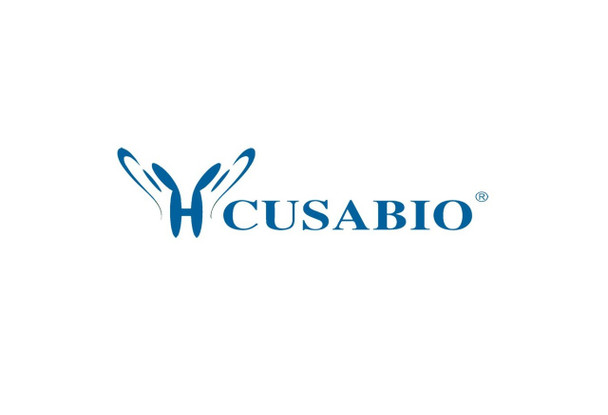Cusabio Human Recombinants
Recombinant Human Chromogranin-A (CHGA) | CSB-YP005344HU
- SKU:
- CSB-YP005344HU
- Availability:
- 3 - 7 Working Days
Description
Recombinant Human Chromogranin-A (CHGA) | CSB-YP005344HU | Cusabio
Alternative Name(s): Pituitary secretory protein I ;SP-I
Gene Names: CHGA
Research Areas: Cancer
Organism: Homo sapiens (Human)
AA Sequence: LPVNSPMNKGDTEVMKCIVEVISDTLSKPSPMPVSQECFETLRGDERILSILRHQNLLKELQDLALQGAKERAHQQKKHSGFEDELSEVLENQSSQAELKEAVEEPSSKDVMEKREDSKEAEKSGEATDGARPQALPEPMQESKAEGNNQAPGEEEEEEEEATNTHPPASLPSQKYPGPQAEGDSEGLSQGLVDREKGLSAEPGWQAKREEEEEEEEEAEAGEEAVPEEEGPTVVLNPHPSLGYKEIRKGESRSEALAVDGAGKPGAEEAQDPEGKGEQEHSQQKEEEEEMAVVPQGLFRGGKSGELEQEEERLSKEWEDSKRWSKMDQLAKELTAEKRLEGQEEEEDNRDSSMKLSFRARAYGFRGPGPQLRRGWRPSSREDSLEAGLPLQVRGYPEEKKEEEGSANRRPEDQELESLSAIEAELEKVAHQLQALRRG
Source: Yeast
Tag Info: N-terminal 6xHis-tagged
Expression Region: 19-457aa
Sequence Info: Full Length of Mature Protein
MW: 50.9 kDa
Purity: Greater than 90% as determined by SDS-PAGE.
Relevance: Pancreastatin: Strongly inhibits glucose induced insulin release from the pancreas.Catestatin: Inhibits catecholamine release from chromaffin cells and noradrenergic neurons by acting as a non-competitive nicotinic cholinergic antagonist . Displays antibacterial activity against Gram-positive bacteria S.aureus and M.luteus, and Gram-negative bacteria E.coli and P.aeruginosa . Can induce mast cell migration, degranulation and production of cytokines and chokines . Acts as a potent scavenger of free radicals in vitro . May play a role in the regulation of cardiac function and blood pressure .
Reference: The primary structure of human chromogranin A and pancreastatin.Konecki D.S., Benedum U.M., Gerdes H.-H., Huttner W.B.J. Biol. Chem. 262:17026-17030(1987)
Storage: The shelf life is related to many factors, storage state, buffer ingredients, storage temperature and the stability of the protein itself. Generally, the shelf life of liquid form is 6 months at -20?/-80?. The shelf life of lyophilized form is 12 months at -20?/-80?.
Notes: Repeated freezing and thawing is not recommended. Store working aliquots at 4? for up to one week.
Function: Pancreastatin
Involvement in disease:
Subcellular Location: Cytoplasmic vesicle, secretory vesicle lumen, Cytoplasmic vesicle, secretory vesicle membrane, Secreted, Note=Associated with the secretory granule membrane through direct interaction to SCG3 that in turn binds to cholesterol-enriched lipid rafts in intragranular conditions, SUBCELLULAR LOCATION: Serpinin: Secreted, Cytoplasmic vesicle, secretory vesicle
Protein Families: Chromogranin/secretogranin protein family
Tissue Specificity: GE-25 is found in the brain.
Paythway:
Form: Liquid or Lyophilized powder
Buffer: If the delivery form is liquid, the default storage buffer is Tris/PBS-based buffer, 5%-50% glycerol. If the delivery form is lyophilized powder, the buffer before lyophilization is Tris/PBS-based buffer, 6% Trehalose, pH 8.0.
Reconstitution: We recommend that this vial be briefly centrifuged prior to opening to bring the contents to the bottom. Please reconstitute protein in deionized sterile water to a concentration of 0.1-1.0 mg/mL.We recommend to add 5-50% of glycerol (final concentration) and aliquot for long-term storage at -20?/-80?. Our default final concentration of glycerol is 50%. Customers could use it as reference.
Uniprot ID: P10645
HGNC Database Link: HGNC
UniGene Database Link: UniGene
KEGG Database Link: KEGG
STRING Database Link: STRING
OMIM Database Link: OMIM









